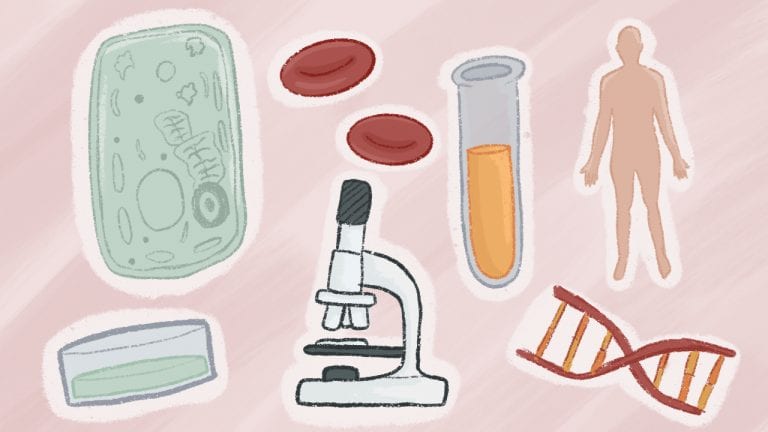
10 Tips in Studying Biology

The field of science is known for its wide coverage and multiple branches. One of these branches is Biology, defined by the Merriam-Webster dictionary as a branch of knowledge that deals with living organisms and vital processes. It often deals with living organisms and how they are able to operate.
Biology is one of the easier branches of science when compared to other branches such as Aviation and Quantum Physics, which is one of the reasons it gains a lot of attraction with students. But Biology can often be interesting as well even without comparing it to its other cousins in the science family.
Isn’t it just intriguing to find out how living organisms operate on the inside or even in a microscopic level? Or how the introduction of a foreign species to an ecosystem can ruin a century long harmony within the ecosystem?
Why you might want to get better at Biology
Since Biology is a very vast branch, you can gain so much more if you were to become better at it. You can pursue a career in Biology and help contribute to better understand living organisms and vital processes. You can become a microbiologist and help study the lives of microscopic creatures which can aid in the creation of vaccines and drugs.
On a more practical sense, better knowledge of Biology can enable you to become knowledgeable with the numerous organ systems in your bodies and the bodies of other living creatures. This can enable you to take care of these organ systems better and determine if one of these organ systems in your body is malfunctioning.
You can also pursue a career as a professor or teacher who majors in Biology in order for you to teach more individuals about the branch of science known as Biology. There are a lot more ways Biology can be helpful in the real world and there are even more reasons for you to learn more about Biology.
10 ways to improve your Biology grades
Now that you know the relevance of Biology in the real world, you might have discovered an interest in it. And now you want to learn how to become better at this branch of science but don’t know where to start. Fear not, for we have come up with a list to help you become better at Biology.
However, do note that the success of this list solely depends on you and how much effort you put into following it. We can only give you the blueprint and it is up to you if you want to build your castle out of bricks or out of sticks. And with that out of the way, here are 10 ways you can bet better at Biology:
1. Remember the terminologies
The first thing in the list is to familiarize with the terminologies. As time goes on, information about the braches of science are constantly updated and corrected in order for the information to be as factual and relevant as possible. However, there are some things that do not change despite of the constant revisions and improvements in information: and one of these things is terminologies.
In order for scientists to avoid confusion, they have agreed to use specific terminologies in order for them to identify specific creatures, organs, or processes occurring inside a creature. All though the terminologies may sound the same and are difficult to spell, they still remain constant and unchanging.
You can use this to your advantage by familiarizing with the different terminologies present in Biology. The more you become familiar with the terminologies, the easier it will become for you to understand the difficult parts later on. A good foundation is needed for a strong and sturdy building.
2. Make frequent notes
The next thing on the list is to frequently take notes about the discussion you are listening to or the source material you are reading. Taking frequent notes allows you to have more exposure to the terminologies and their definition and also work as save points for your studies as you can always look back and reread them when you start to forget the contents of the previous lecture you had.
You can also take it up a notch by writing brief summaries or outlines of the topic you are currently engaged in. This will allow you to have the same benefits as taking small notes about the topic but has extra perks such as: a more organized study material and more detailed descriptions.

3. Review previous exams
If you want to improve your score in the subject, then you can opt to review previous exams. This helps you become aware of the parts you are weak in and also enables you to review at the same time.
Most major exams are preceded by smaller quizzes or tests to help you become more familiar with the topic. Collect these papers if possible and take note of the mistakes you often make and make sure to review those parts of the topic. By doing so, you improve your chances of making the same mistake again which can greatly improve your performance in the next exam.
4. Analyze biological diagrams
Either to keep individuals interested in certain topics in Biology or to just explain the topic better, most topics in Biology come with diagrams. These diagrams can range from illustrations of certain organ systems, cross sections of microscopic organisms, or a vast web of producers and consumers.
You can understand the topic better if you were to first understand how these diagrams are connected to the topic and how each illustration connects with the other. Try to understand how an arrow in the food web represents how one end is the prey and the other end is the predator. Another example is how oxygen is transferred from the lungs towards the different muscle groups in the body through the blood stream.
Think of these diagrams as codes you need to decipher in order for you to fully understand the topic. The more you understand the diagrams given to you, the more you will clearly see the details of the topic. Supplement this with your notes and you are almost set to conquer every Biology exam in your way
5. Make flowcharts
In certain circumstances, the topics presented t you will be about a process and you will have trouble finding a suitable diagram to review. You can overcome this hurdle by making your own flowchart of the events occurring which contribute to the overall process you are currently studying.
This is a great way to sort out which events occur first to avoid any confusing and can also serve as your notes to be studied later on. By making your own flowchart of events, you also become familiar with the terminologies involved and how to spell them as you gain first-hand experience by writing or typing the terminologies yourself.
6. Organize your notes
After making notes on top of notes about different topics in Biology, it can get a little cluttered and messy. Try to arrange your notes according to how they are connected with one another. That way, you can group them into generalized topics and not individual topics to help you retrieve your notes faster.
7. Form a study group
Isn’t it less boring to learn new things when you are in a group? You can form a study group of 2-4 people to help you study Biology. You can share notes with each other, answer quizzes made by each other, or have a question and answer segment together about the topic you are reviewing.
However, try to limit the amount of people involved in your study group as more individuals involved can often lead to a gathering instead of a study group. A good study group can help you learn and study better while still enabling you to socialize with your peers.
8. Make a study schedule
It is useless to only study a topic once and then throw it out the window the next day. You need to constantly retrieve the information you studied from your memory for It to become long term memory. Frequently study the topic in intervals to help you become better at retaining the information.
Try to study a topic the day after you have learned it, then study it two days after you studied it, and then make it 3 days and so on until you can go an entire week of interval while still retaining a good chunk of information about the topic. After all, repetition is the key to retention.
9. Learn memory techniques
There is a wide array of memory techniques you can use to help you remember the topics in Biology better. Some can be as complicated as the memory palace technique, while others can quite simple such as the Loci technique which uses incorporation with certain objects you own to remember information.
Search on different memory techniques and find one that suits your taste and incorporate the techniques to your studies. memory techniques can help you become much better at retaining information about Biology which would greatly increase your performance in the subject.
10. Hire a tutor
Another thing you can do to supplement the steps mentioned earlier is to hire a tutor to help you in your studies. A tutor can aid you a lot in your conquest to get better at Biology as you will have another person to help you understand the topics better. And if you are looking for highly skilled and qualified tutors, then FamilyTutor has you covered.
We are a home tuition agency in Singapore with thousands of tutors to teach you different subjects such as English, Maths, Sciences, and more. And of course, we also cover Biology as well. All it takes is a few clicks of your cursor and you can have your private tutor from Singapore’s best tutoring agency.

Carelle
Carelle is a teacher who has been through the ups and downs of the teacher and learner life. She wishes for every learner to gain educational satisfaction that will help embody the people they want to be in the future.
Tell Carelle Below What You Think About Her Post!

About FamilyTutor!
FamilyTutor is an established home tuition agency in Singapore! We match suitable home tutors for our clients not just to improve the students' academic grades, but also to build a strong rapport and meaningful relationship with the students and even the their whole family. FamilyTutor put every student in good hands!
If you need an excellent home tutor, feel free to call/WhatsApp us at +65 8777-2168! Our matching service is free!
Related Posts!
Follow Us On Facebook!
Education Levels
National Exams
Math & Science Subjects
Language Subjects
Japanese Tuition
Korean Tuition
German Tuition
Humanities Subjects
Social Studies
Chinese Literature Tuition
About Us
FamilyTutor is an established and the people’s favourite home tuition agency in Singapore! We match a suitable tutor for you not just to improve the student’s grade, but also to build a good rapport and meaningful relationship with the student and even with the student’s whole family! With FamilyTutor, every Singaporean son & daughter is in good hands.
Contact Us
- 8777 2168
- 8777 2168
- Mon-Sun 9am-10pm (Including PH)
- contactus@familytutor.sg
- 17 Petir Road Singapore 678278



